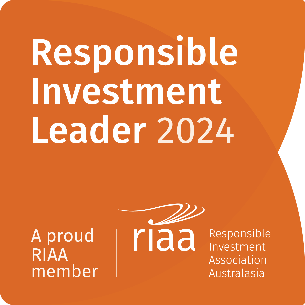Graham Skellern: Mood of the boardroom - Government on a fiscal tightrope

28 September 2020: The Minister of Finance after the general election will need to walk a financial tightrope to create a credible Covid economic recovery plan that benefits both business and households, and cuts into mounting debt.
The Mood of the Boardroom asked CEOs and directors: What should the major priority be for the next Minister of Finance?
The 165 respondents argued for a clear, well-articulated plan that stimulates activity, introduces economic reform and provides a stronger, brighter future.
"It's a balancing act," said a business entrepreneur. "The Minister needs to carefully stimulate the economy, support business and individuals/families through Covid impacts, while minimising the debt that needs to be cleaned up out the other side of this. Expenditure has to be well targeted."
Cameron Bagrie of Bagrie Economics said beyond the challenges of Covid, "we need to embrace change on multiple levels. If we can't embrace some real economic reform during this crisis, then we never will. People and businesses need confidence in the ability of the government of the day to execute.
Without it, they'll be cautious about putting their own balance sheet to work."
Mark Cairns, Port of Tauranga chief executive, said "we have to shift from managing a global pandemic crisis to managing our way through a global economic crisis. We are going to have a mountain of debt that we have to plan our way through repaying."
Simon Bennett, chief executive of AWF Madison, said "we need a return on investment from the Covid-response spend." Fonterra chief executive Miles Hurrell said the recovery plan must strike the right balance between investment and fiscal discipline.
The next Finance Minister will face rising unemployment, peaking at 7.8 per cent in March 2022, and a government deficit of $23 billion this year, according to the Treasury's Pre-Election Economic and Fiscal Update.
The deficit is expected to hit $12b in 2024 compared with the previous estimate of $5b. Net core Crown debt is forecast to peak at 55.3 per cent of gross domestic product (GDP) in the 2024 financial year.
The latest ANZ Bank NZ Insight report says the economy is in the midst of a deep recession, the brunt of which is yet to be fully felt. Consistent with its mandate, the Reserve Bank has provided monetary stimulus to help stabilise the economy — including cutting the official cash rate (OCR) and embarking on a programme of quantitative easing.
The report said the bank was looking at other options in its toolkit to stimulate the economy further, and its monetary policy committee has expressed a preference for taking the OCR into negative territory and combining that with a Funding for Lending Programme.
Former Finance Minister and Synlait Milk director, Ruth Richardson, had suggestions for a multi-faceted economic recovery plan: "Restore fiscal responsibility and measured monetary policy; power up the private sector; embrace tax reform that gets rid of fiscal drag; be courageous on super reform; insist on proper cost-benefit analysis for all public expenditure; embrace the social investment approach; tackle the scandalous under-performance of our major agriculture co-ops; bring down the Berlin Wall of failing health and education regimes; initiate major regulatory reform; and dismantle the xenophobic investment barriers."
A financial services leader said if New Zealand is going to massively expand its indebtedness, then there has to be value from this beyond the immediate buy-groceries situation. "This is the biggest spend in our history and should be matched with the same level of vision and controls."
Mark Wynne, Ballance Agri-Nutrients chief executive, wants structural reform to stimulate growth by reforming the Resource Management Act for ease of doing business; introducing compulsory superannuation for long-term wealth building and funding; and promoting infrastructure investment, particularly green infrastructure.
A real estate leader suggests using the tax system to encourage expenditure and investment, and build greater resilience to future shocks — while "breaking our dependence on the sugar hits of immigration and low-rent tourism jobs. That means directing investment in physical and human capital, and infrastructure".
Brett O'Riley, EMA chief executive, wants New Zealand to transform the performance of the economy and build the sustainable growth required "to maintain our standard of living".
Nick Wells, chief executive partner at Chapman Tripp, wants ongoing stimulus on better infrastructure and sustainability aimed at the longer-term needs of New Zealand.
Jolie Hodson, Spark chief executive, said the economic recovery must achieve balance between investing behind "our rainy day" moment while not burdening future generations with debt that is not manageable. "We should be focused on investments that will accelerate New Zealand into the future and position us to succeed in our new normal."
Stephen Jacobi of Jacobi Consulting was more direct. "For recovery, we need high quality investment, spending and regulation. We need politicians to put the country first and to embrace good ideas wherever they come from. And we need urgently to stop the pork barrel."
Craig Stobo, Precinct Properties chairman, said "if we agree that the Government's policy to the pandemic has led to our economic malaise, then the major priority of the Finance Minister is the restoration of an open and free economy".
The final word came from a transport and logistics director. The PM has to work out how to rebuild the economy while people stay safe. Small business is a critical component in the rebuild of the commercial landscape, and "we need a Prime Minister and government that has an understanding of how businesses really work and how they can work with small business. We have an economic calamity heading our way — a debt mountain — we are going to need an experienced government to help all New Zealanders balance our priorities on this extremely rigid tightrope."
Cameron Bagrie
Bagrie Economics
Top 3 Issues
● Dealing with disruption including Covid-19. There is too much complacency. We need to shake the tree on the 'she'll be right' attitude.
● Government. A for aspiration. E for the ability to execute. We need more quality people in politics.
● Long game vs short game. Too much focus on the latter. Stakeholder capitalism is just a fancy name for being more long-term focused. At the epicentre of the long game is people.
Paul Glass
Devon Funds Management
Top Issues
● The increase in Government debt is one of my biggest worries for New Zealand. It took us 30 years to get debt down to prudent levels and it's only going to take 18 months to blow it right back out. Much of the expenditure is of very poor quality and won't result in a better NZ in the long term. We are also very vulnerable if another disaster was to occur.
● Our infrastructure, particularly in Auckland, is simply not coping with the population growth we have had over the last decade. Congestion is having a seriously negative impact on productivity and also the quality of life. With the Government balance sheet now stretched we need to partner with private capital to provide infrastructure.
● Inequality is likely to become even more problematic if the RBNZ moves to negative interest rates. This would result in asset prices continuing to rise well in excess of income growth. Our taxation structure needs to be reviewed by an independent and non-political group.
Don Brash
ICBC
Top 3 Issues
● The pressure we are already under to choose sides in the increasingly tense relationship between the US and China.
● The very slow (and persistently slow) rate of productivity growth. No simple solution, but "fixing" the RMA in a way which doesn't make matters worse is one important component of encouraging investment, and therefore productivity growth.
● The severe social pressures caused by wildly unaffordable housing, the direct result of local government failure to free-up land zoning and expedite resource and building consents. (The current Government committed to solving this problem in the Speech from the Throne in 2017, but has failed to deliver.)
Michael Barnett
Auckland Business Chamber
Top 3 Issues
● That those sectors hardest hit by Covid do not go back to normal as they knew it. The longer these sectors are left believing that there is a return to normal, the longer it is before they face some harsh realities. At that point they can either reinvent or reimagine but at least they can stop sitting there believing the change they need is going to occur.
● Closed borders. Locked in or locked out will not tell the Government if they have the capability to manage a resurgence. They can take small steps if they want. But they do have to take some steps. Over one-quarter of our economy is dependent on open borders and having dealt with the health crisis they now need to address the economic crisis. Claiming success and not testing that success is not a win.
● Short-term jobs. Turn MSD database of unemployed into a jobsite and and provide an environment for business in which it is easy to employ, short-term; long-term; part-time and fulltime.
Don't be afraid of debt if it's intelligent spend.
This article was first published on the NZ Herald website. It was written by Graham Skellern.





